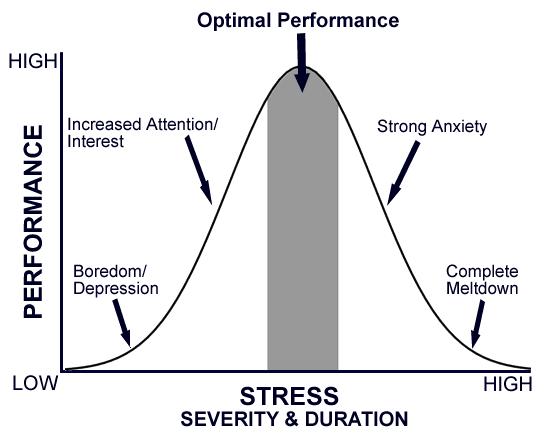3 tips for dealing with stress at work

Stay up to date:
Mental Health
The workplace can be a hotbed of stress – six in 10 workers in major global economies say they are experiencing increasing workplace anxiety, according to research by the Regus Group. Add to this the loss of working days – some 13.7 million days a year in the United Kingdom alone, according to the National Institute for Health and Clinical Excellence – and the cost to the economy. Therefore, being able to deal with stress is not only vital for our well-being but our productivity.
According to UK mental health charity Mind, there is no medical definition of stress, so understanding what is causing the condition can be hard to pin down and can make dealing with it far from straightforward. Luckily, there are some common signs, such as a sense of dread or being unable to enjoy things, snapping at people or picking at your skin, and physical signs such as tiredness, headaches or trouble sleeping.
There are also a number of common causes of stress, and being aware of them can help us respond effectively. They can be obvious, such as money worries, bereavement or starting a new job, or they can be less so, such as friendships and our own unmet expectations. As Mind emphasizes, though, people react differently to these situations based on their individual perceptions, ability to deal with them and general emotional resilience.
We all experience stress at work, however frequently or infrequently, and so it is something we should look for help in coping with.
Source: Dr Travis Bradberry
The following three tips on how to tackle workplace stress come from Professor Cary Cooper, an occupational health expert at the University of Lancaster, writing for the British National Health Service, and from Dr Erica Reischer, a psychologist writing in Psychology Today.
- Take control. Reischer, drawing on her background in cognitive-behavioural therapy, suggests that the first step is noticing there is a problem. If you do not accept that a hurdle exists, how can you hope to overcome it? Cooper goes further, arguing that believing there is nothing you can do about a problem is a major cause of stress. Therefore accepting a problem exists, but then mentally or literally taking control of the situation, can be a significant step on the pathway towards relieving stress.
- Shift your perspective. As Cooper says, we aren’t always very good at appreciating the things we have, and instead choose to concentrate on the negative. For the more naturally pessimistic among us this will require a shift to a more positive outlook: Cooper suggests writing down three things at the end of every day that were a success or that you feel grateful for. Reischer calls this “reframing” – changing our interpretation of a situation or our life more generally. As she makes clear, this doesn’t mean you’re in denial, or ignoring the problem. She suggests that more often than not we are stressed about a situation because we are making assumptions and reaching conclusions without the necessary evidence. To counteract this we should “start by looking for evidence that supports the opposite of your anxious thought”.
- Get active. This can be as simple as changing your posture or body position, or hitting the gym. How we hold and move ourselves affects our emotional state and experience, according to research cited by Reischer. She argues that if you want to feel happier you can use your body to convey those feelings – holding yourself a little taller is a powerful tool. For Cooper, we shouldn’t underestimate the power of exercise when dealing with stress. While it doesn’t directly cause stress to disappear, it can help clear your thoughts, allowing you to tackle the problem more coherently and calmly.
Have you read?
Is digital media stressing us out?
Work stress: why women have it worse than men
Read more articles on health
To keep up with the Agenda subscribe to our weekly newsletter.
Author: Joe Myers is a Digital Content Producer at Formative Content.
Image: A stockbroker looks at stock index numbers on his computer screen at a brokerage firm in Mumbai August 6, 2007. REUTERS/Punit Paranjpe
Don't miss any update on this topic
Create a free account and access your personalized content collection with our latest publications and analyses.
License and Republishing
World Economic Forum articles may be republished in accordance with the Creative Commons Attribution-NonCommercial-NoDerivatives 4.0 International Public License, and in accordance with our Terms of Use.
The views expressed in this article are those of the author alone and not the World Economic Forum.
Related topics:
Forum Stories newsletter
Bringing you weekly curated insights and analysis on the global issues that matter.
More on Jobs and the Future of WorkSee all
Spencer Feingold
April 15, 2025
Jarah Euston and Isabelle Leliaert
April 10, 2025
Kiva Allgood and Sue Ellspermann
April 9, 2025
Keith E. Ferrazzi
April 7, 2025
Sue Duke
April 4, 2025






